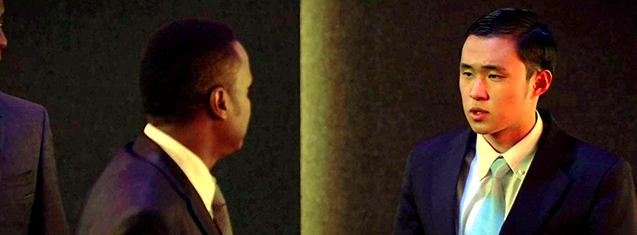
Sung-Hoon as the on-screen character Operator 2
Sung-Hoon Kim’s dream of starring in a movie became a reality with the release of Reconnect on 16 October 2015 in Nu Metro cinemas across the country.
The second-year medical student at the University of the Free State transitioned into a professional actor in December 2013, when he made the leap from his high school drama stage to shooting for the big screen.
“I did plays in high school where I had roles like Simba in The Lion King,” said the first-time movie star.
The film is a purely South African creation. It is set in Potchefstroom and Klerksdorp, Sung-Hoon’s former and current hometowns. Sung-Hoon plays two major roles: XJ-1- a robot, and the on-screen role of artificial intelligence Operator 2 at SKY CORP - an international intelligence company that protects top secret information from around the world.
Reconnect was directed by the late Marius Swanepoel, who Sung-Hoon described as “a great blessing to all those privileged enough to have known him.” The movie explores the relationship between human beings and artificial intelligence.
Eric Scott discovers XJ-1 at an abandoned warehouse, and transfers him to SKY CORP where he becomes destructive. Eric and his friend, Jason, are then faced with the challenge of containing the situation, and saving the company which XJ-1 has infected with a dangerous virus. As the science-fiction action unfolds, viewers catch a glimpse into the life of XJ-1.
Shooting the movie was an exciting experience for Sung-Hoon. “It was quite fun because I like imitating voices,” he said.